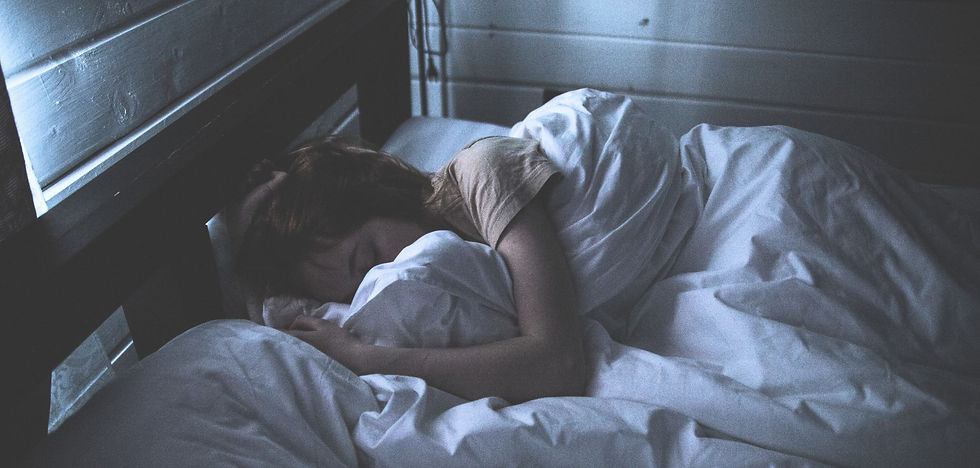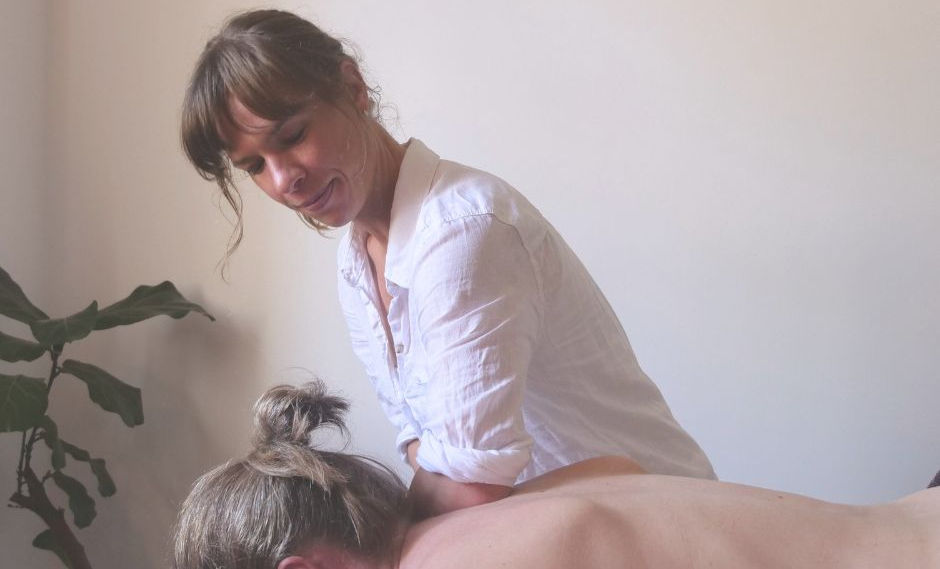The Yin & Yang of Sleep
- vicewen
- Nov 2, 2024
- 4 min read
“A well spent day brings happy sleep” – Leonardo Da Vinci
We all know the importance of a good night’s sleep, but many of us are all too familiar with the tiring drag of poor sleep - be it once in a while or ongoing - and the detrimental effects it has on our minds, bodies, and relationships.
Our human need for a decent rest each night is a beautiful example of how cyclical we are, and how inextricably linked we are to the larger cycles of nature... By looking at the nuts and bolts of contemporary understanding, along with the broader perspective of traditional knowledge, we can attempt to understand what it means to be in sync when it comes to sleep...

The Traditional Chinese Medical theory of Yin and Yang speaks to this natural rhythm of opposing forces that we move between from the smallest to the grandest scale. Yin and Yang are said to have the following four principles: opposition, inter-dependence, mutual consumption, and inter-transformation – and it follows that the states of sleep and wakefulness have the same – both must be in balance for each to be whole and healthy.
The Western medical perspective on sleep aligns nicely with Yin Yang Theory, with the daily alternating dominance between hormones such as cortisol and melatonin, the need for light, warmth & activity during the day, and the need for darkness, coolness and stillness in the night.
It’s always tempting to try and find a specific cause of your sleep difficulty (or any other health issue for that matter), with a single solution. But most of the time there are many factors involved, and it pays to step back and try to understand the situation holistically. With sleep we must look at the how we are during the day, because like Yin & Yang these opposing states are inter-dependent.
Light Exposure
The circadian clock – located in your brain, with connections to organs and glands throughout your body – is largely influenced by external cues. Light is the main factor, and if we were living a more traditionally ‘natural’ life aligned with the elements this interaction would happen without needing to do anything in particular, but due to our modern indoor lives we may find it useful to deliberately manage our light exposure:
- Spend 5 to 15 minutes first thing in the morning outside in natural light (not through a window or with sunglasses on); this stimulates cortisol to be released to get you going for the day and also sets a biological ‘timer’ for melatonin to be released, which helps you to wind down at night time.
- Do the same again when the sun is going down in the late afternoon to allow your circadian clock to sync up and start getting ready for night time.
- Avoid artificial lights in the evening – devices especially, but also reducing your ambient light in the house. You may find ‘night mode’ on your screens helpful, and you can get glasses that block ‘blue light’ for this purpose as well.
Reduce Stress
Chinese medicine states that the Shen (spirit/mind) and the Hun (ethereal soul) need to be anchored with adequate Heart & Liver Yin at night time for sleep to be peaceful – otherwise the mind and spirit wander, causing restless sleep. This is a poetic way of describing how if you have become depleted by over-working or over-thinking, under-nourishing, or simply ageing, the more active (Yang) parts of your mind and consciousness won’t be able to settle at night when you want them to.
Do you always wake up at the same time in the night? In TCM the qi circulates through the meridians and organs over a 24 hour period, with each organ having a two hour period where it is most active. For example, the time when Liver Qi is most active is between 1am & 3am – ideally we are fast asleep and the Liver can fulfil it’s tasks of rejuvenating the body, but if a person is under a lot of stress (which can affect the Liver), waking up at this time is common. Around 3am is when cortisol levels increase to prepare you for being alert upon waking, but if you are already running higher levels than usual it may be enough to wake you up.
It’s a hard ask to think your way out of over-thinking and stress, so why not use the body instead? The feelings and responses to psychological stress permeate your body and trigger very physical reactions, so regularly doing the physical practices that help you feel more relaxed can calm an active mind that won’t let you sleep. These could include: breathing practice, meditation, yoga, reading, massage, journaling, walking etc.
Can Acupuncture help?
Of course, it’s likely you might need some extra sleep support with the pressures of daily modern life. An acupuncture practitioner will enquire with you about the nature of your particular sleep patterns and lifestyle habits, as well as other physical signs and conditions that might point to where you could be deficient or in excess, and work to re-balance. In general terms, acupuncture can affect the nervous system to get you out of ‘fight or flight’ and into ‘rest & digest’, where you need to be to sleep. I find it very satisfying to help clients get better sleep, and we often find that once sleep is sorted, other health issues such as brain fog, or pain conditions start to resolve themselves as the body has a better chance to heal.
Sleep Hygiene
Some basic improvements to your sleep environment and habits can help too:
- Keep a regular routine around going to bed & getting up in the morning.
- Keep your bedroom cool, quiet, and dark - eliminate light sources in the bedroom at night; consider things like alarm clocks, and light blocking curtains.
- Exercise earlier in the day rather than later.
- Ensure there are a few hours between eating and going to bed.
-Reduce caffeine intake and keep it to the morning.
-Reduce alcohol intake (often people find alcohol helps them drop off to sleep, but it impacts the quality of sleep and often causes waking at night).
So how did you sleep last night? Do yourself a favour and prioritise your sleep habits this month!



